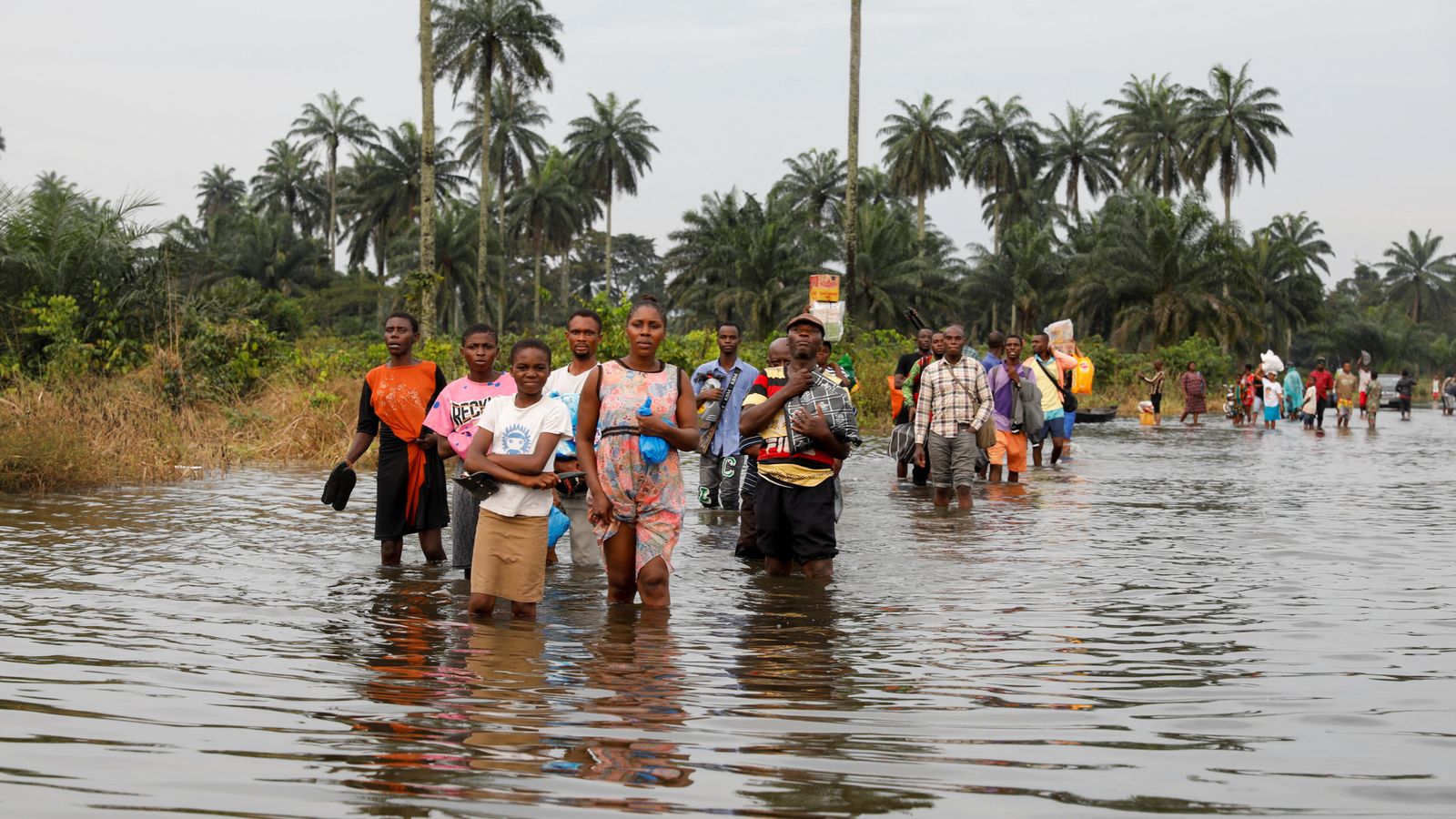The prime minister of Barbados is somewhat of a rockstar at these climate talks, if there can be such a thing.
Yesterday at COP27, Mia Mottley was greeted at an event by a media swarm and packed youth audience, with one member from Trinidad and Tobago proudly exclaiming: “I’m here because I want Mia Mottley to run the Caribbean.”
That’s not just down to the searing attack she directed at the rich world on Monday – leaders lack “the simple political will” to “make a definable difference in the lives of the people who we have a responsibility to serve”, she said.
It also because she is trying to radically overhaul the global financial system, which she says was designed after the Second World War but is not fit for today’s number one challenge: the climate crisis.
Extreme weather events such as hurricanes, droughts and floods, which disproportionately hit vulnerable countries such as island nation Barbados, turn into bigger debt burdens for those who are already least able to afford them.
“If we have to borrow for climate, then it crowds out the borrowing we must do for education, for health care, for clean water,” Ms Mottley said in response to a question from Sky News on Tuesday.
“The system is broken,” she said, citing borrowing rates in the G7 costing between 1-4%, but in most of the Global South hitting some 12-14%.
COP27: Zelenskyy reveals how much forest destroyed by Russia’s war – and accuses Putin of disrupting global climate action
COP27: Money is the fault line at every summit – but it is now a yawning chasm
COP27: Agree on climate action or face a ‘collective suicide pact’ – UN chief’s ultimatum to world leaders
“So you begin to see the disparity,” she added.
A key part of the plan is to reform the IMF and multilateral development banks to provide debt relief and allow members to borrow cheaply from each other’s reserves, freeing up cash to help them to cope with climate change. It also lowers risk for lenders if countries are less likely to go bankrupt.
“How is it possible that we have these enormous international financial institutions in place,” asked Bilawal Bhutto Zardari, the Pakistani foreign minister, and yet still “when we come to face historic flooding, like we did in Pakistan, that we end up not only drowning in the floodwater, we also end up drowning in the debt as a result of having to rebuild?”
Pakistan, facing $40bn clear-up costs, is one country lobbying for “debt swaps”, championed by United Nations chief Antonio Guterres, where creditors allow poorer countries to redirect interest payments towards climate measures when disasters strike.
“People of Pakistan are literally paying in the form of their lives and their livelihoods for a crisis that they didn’t create,” the minister told Sky News in Sharm el-Sheikh.
Developing nations are ‘angry at the failure’
Part of the reason countries are so desperate is that rich polluting nations have broken a promise to fund $100bn a year of climate measures in poorer nations.
“Developing countries are angry at this failure… $100bn was only ever a fraction of the amount needed, a symbol of goodwill and of recognition of historical responsibility,” said Sarah Colenbrander, director of the climate programme at ODI, a global affairs think tank.
“So they have stepped forward with a number of responses and solutions themselves,” added Ms Colenbrander, who is observing thorny finance negotiations.
Read more:
Summit hinges on taboo issue of whether developed nations will pay climate compensation
The issue on everyone’s lips at the conference in Egypt is the idea that rich, polluting countries should pay compensation for the climate breakdowns battering their poorer, far less polluting counterparts.
The group of 20 (G20) major economies is responsible for a whopping 80% of climate-heating gases, while the whole of African is responsible for just 4%, but is suffering disproportionately.
In an historic moment, the concept of compensation made it on to the agenda of a United Nations conference for the first time, after years of lobbying by small island nations in particular. But rich countries such as the United States resist the idea, and the cash may not ever flow.
Please use Chrome browser for a more accessible video player
With no time to lose, the V20, a group of finance ministers from 58 vulnerable nations, are designing plans to supercharge green industries, and therefore their economies, by detaching the risk of the project from the perceived risk of investing in their country.
“The vulnerable nations bear the brunt of the crisis. However, we did the least to cause it and are least equipped to solve it,” the group’s chair, Ghana’s Ken Ofori-Atta, told Sky News.
African countries are on course to suffer a 20% hit to their GDP within 30 years if the world warms as predicted, according to a report released on “finance day” at the COP27 talks today, hammering home the risks for poor countries.
“So yes, to a certain degree, [countries are] being a lot more proactive about [finance] and insisting on one’s right for this right not to occur.”
“Developing countries are not the only ones who see that the system is broken,” added Ms Colenbrander. Developed nations are also seeking reforms to unlock money to fund climate measures.
“Obviously you’ve got a real opportunity for change, if you have everyone from Barbados to Pakistan to the US to Germany rallying behind demands for that multilateral system to do better. So I think we can expect quite a bold vision coming out” next year, she said.
Watch the Daily Climate Show at 3.30pm Monday to Friday, and The Climate Show with Tom Heap on Saturday and Sunday at 3.30pm and 7.30pm.
All on Sky News, on the Sky News website and app, on YouTube and Twitter.
The show investigates how global warming is changing our landscape and highlights solutions to the crisis.





